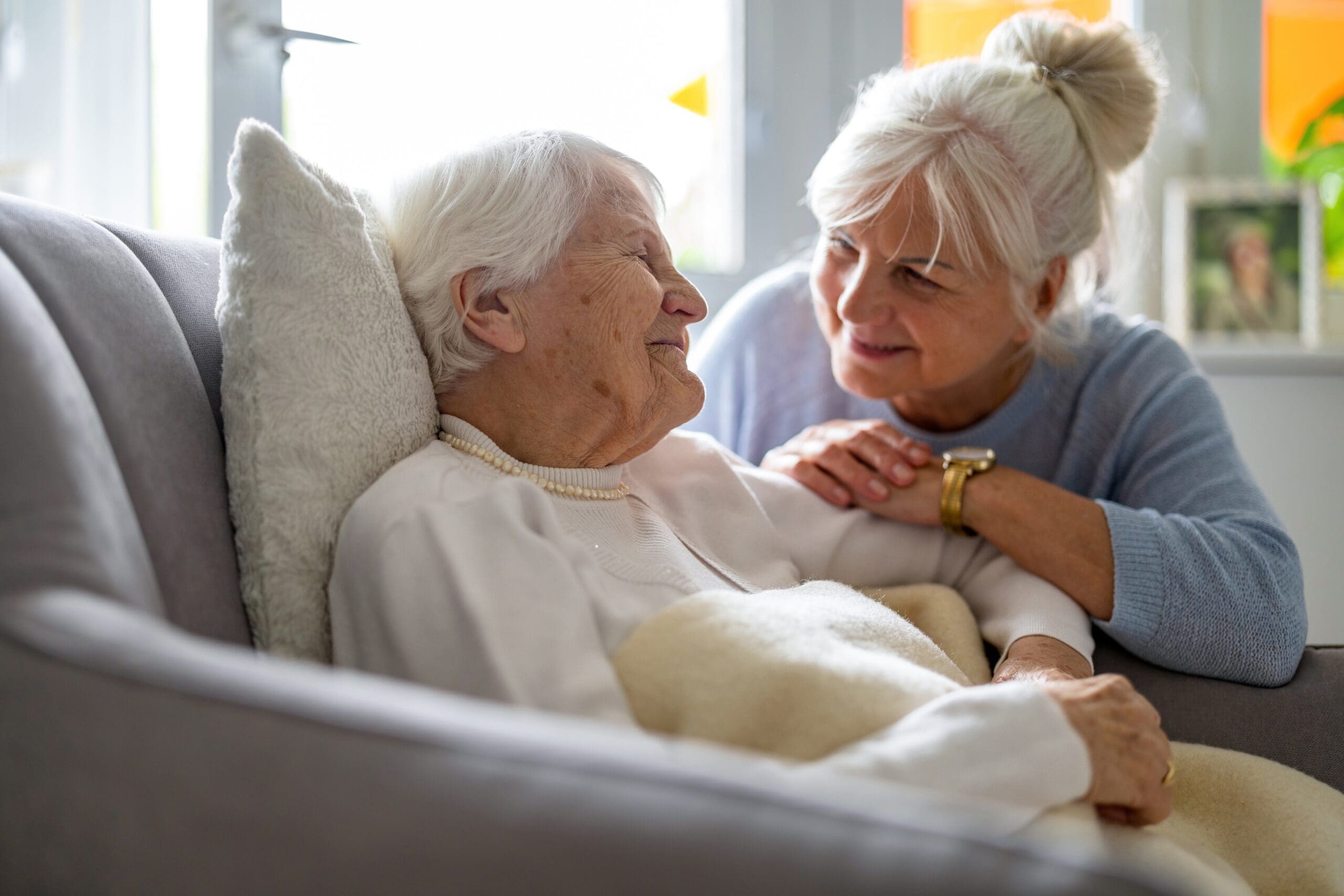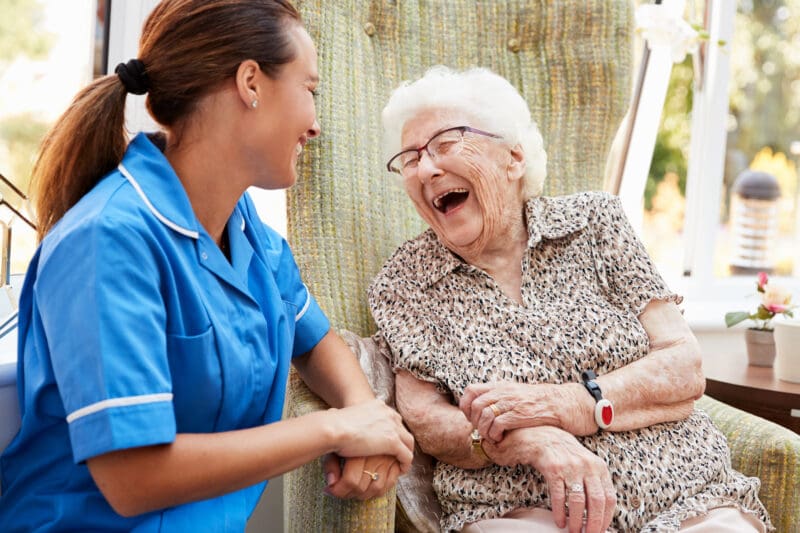What qualifications do I need to be an Elderly Carer?
Everything you need to know about qualifications to become an Elderly Carer
Becoming an elderly carer is not just a career choice; it’s a calling that offers profound rewards and meaningful connections. In today’s society, where the ageing population is rapidly increasing, the role of an elderly carer has never been more vital. By choosing this path, you are stepping into a profession that allows you to make a significant difference in the lives of older adults and their families.
As an elderly carer, you will have the opportunity to provide compassionate support and companionship to those who need it most. Your role will involve assisting with daily activities, ensuring their safety and well-being, and often becoming a trusted friend in their lives. The skills required for this profession go beyond practical caregiving; they encompass empathy, patience, and dedication.
For those considering this rewarding career path, there are numerous training programmes available that can equip you with the necessary skills and qualifications. The demand for skilled carers is high across the UK, offering job security and opportunities for advancement within healthcare settings or private care homes.
Embarking on a journey as an elderly carer means embracing both challenges and triumphs while contributing positively to your community. It’s about building relationships based on trust and respect – and ultimately enhancing the quality of life for our cherished seniors.
In this Elderly Carer’s qualifications guide
Qualifications to be an Elderly Carer
Caring for the elderly is a noble and rewarding profession that requires a unique blend of skills, compassion, and dedication. As our population ages, the demand for qualified elderly carers continues to grow, making it an opportune time to consider this fulfilling career path. But what exactly qualifies someone to become an effective elderly carer? It’s more than just having a kind heart; it involves acquiring specific qualifications and skills that ensure the highest standard of care.
Firstly, formal training is often essential. Many employers look for candidates who have completed relevant courses in health and social care, which provide foundational knowledge in areas such as first aid, dementia care, and safe handling techniques. These qualifications not only equip carers with the necessary expertise but also demonstrate their commitment to providing professional care.
In addition to formal education, personal attributes play a crucial role in this field. Patience, empathy, and strong communication skills are indispensable qualities that enable carers to build trustful relationships with their clients and address their individual needs effectively.
Moreover, practical experience can be invaluable. Volunteering or working in related roles can offer insights into the daily challenges faced by elderly individuals and how best to support them. This hands-on experience can significantly enhance one’s ability to provide compassionate and competent care.
Ultimately, becoming an elderly carer involves a combination of education, personal qualities, and practical experience – all aimed at ensuring that those who have spent their lives caring for others receive the dignity and respect they deserve in their later years.
What qualifications are needed to be an Elderly Carer?
When considering a career as an elderly carer, understanding the qualifications required for each level is crucial in determining your path within this rewarding field. In the UK, the roles are typically categorised into Level 2, Level 3, and Level 4 positions, each with distinct responsibilities and expectations.
Level 2 Elderly Carer Qualifications
At Level 2, individuals usually hold a foundational qualification such as a Certificate in Health and Social Care. This level is often seen as an entry point into the profession, where carers assist with daily activities like personal hygiene, meal preparation, and mobility support. The primary focus at this stage is on delivering compassionate care while developing essential skills under supervision.
Level 3 Elderly Carer Qualifications
Level 3 represents a more advanced role requiring additional qualifications like a Diploma in Health and Social Care. Carers at this level are expected to take on greater responsibility by managing more complex care needs and possibly overseeing junior staff members. They play a crucial role in implementing personalised care plans tailored to each resident’s specific requirements.
Level 4 Elderly Carer Qualifications
For those aiming for leadership positions in elderly care, Level 4 offers opportunities to specialise further or move into managerial roles. This level demands comprehensive knowledge of health care regulations and advanced training – often including diplomas or certifications focused on management within health services. Responsibilities include coordinating care delivery across teams, ensuring compliance with legal standards, and liaising with families to provide holistic support.
Each qualification level builds upon the last, equipping carers with the skills necessary to provide high-quality service while advancing their careers. Whether you are starting at Level 2 or aspiring towards Level 4 expertise, there are clear pathways that not only enhance professional growth but also improve the lives of those you care for every day.

Professional bodies for an Elderly Carer
Joining a professional body can significantly enhance the career of an elderly carer, providing valuable resources, support, and networking opportunities. One such esteemed organisation is the British Association of Social Workers (BASW). This body offers a wealth of resources tailored to carers, including professional development courses and access to a community of like-minded professionals who share your commitment to quality care.
Another noteworthy organisation is Skills for Care. As an authority in adult social care in England, it provides comprehensive guidance on best practices and career advancement. Membership here not only boosts your credentials but also keeps you informed about industry standards and legislative changes that affect your role.
The UK Homecare Association (UKHCA) is another vital body for those working within domiciliary care settings. It advocates for high standards in homecare services and offers its members exclusive insights into sector trends and policy updates.
By aligning yourself with these professional bodies, you demonstrate a dedication to excellence in elderly care while gaining access to invaluable resources that can propel your career forward.
Training fees to become an Elderly Carer
When planning a career as an elderly carer, understanding the cost of training is crucial to making an informed decision. The journey towards becoming a qualified carer typically involves completing several levels of certification, each with its own associated fees.
For those starting out, Level 2 training provides the foundational knowledge essential for providing quality care. This level is often the most affordable, with fees generally ranging from £300 to £500. It’s a worthwhile investment that equips you with the basic skills needed in this rewarding field.
Progressing to Level 3 involves more in-depth study and practical experience, which naturally reflects in its higher cost. Training fees at this level can range from £600 to £1,000. However, this qualification not only enhances your expertise but also significantly boosts your employability and potential earnings.
Finally, Level 4 training represents advanced learning and specialisation within elderly care. While prices can vary widely depending on the provider and specific course content, you might expect to pay between £1,200 and £2,000. This level prepares you for senior roles within care facilities or even management positions.
Investing in these qualifications not only opens doors to more career opportunities but also ensures that you are well-prepared to provide compassionate and professional care to those who need it most.

Getting experience to be an Elderly Carer
Stepping into the role of an elderly carer is both a rewarding and fulfilling career choice. It’s essential to gain relevant experience to truly excel in this field, and there are several pathways you can explore to build your skills and confidence.
Volunteering at local care homes or community centres is a fantastic way to start. This hands-on experience allows you to understand the daily responsibilities of caring for the elderly, from assisting with personal care to providing companionship. Additionally, volunteering demonstrates your commitment and passion for the role, which can be highly attractive to future employers.
Another effective approach is enrolling in courses that offer practical training in elderly care. Many organisations provide workshops or certifications that cover essential topics such as first aid, dementia awareness, and safeguarding vulnerable adults. These courses not only enhance your knowledge but also equip you with the necessary tools to handle various situations with empathy and professionalism.
Networking with professionals already working in elderly care can also be incredibly beneficial. Attend industry events or join online forums where you can engage with experienced carers who can share valuable insights and advice. Building these connections may open doors to opportunities you hadn’t previously considered.
Lastly, part-time roles or internships within healthcare settings can provide invaluable experience while allowing you to learn from seasoned professionals. Working alongside established carers will give you a deeper understanding of best practices and help refine your caregiving skills.
By actively seeking out these experiences, you’ll not only build a strong foundation for a successful career as an elderly carer but also make a meaningful difference in the lives of those who need it most.



